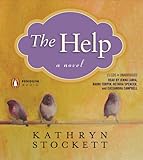 First, I received an e-mail from HarperCollins informing me that I won The Map of True Places Sweepstakes. I enter contests like this all the time, but I never have any expectation of winning. My prize is a weekend in Salem, Massachusetts, a place I have always wanted to visit (especially as an English teacher). I am so incredibly excited. I hardly know how it happened. Like I said, I enter these contests whenever one strikes my fancy, but how exciting!
First, I received an e-mail from HarperCollins informing me that I won The Map of True Places Sweepstakes. I enter contests like this all the time, but I never have any expectation of winning. My prize is a weekend in Salem, Massachusetts, a place I have always wanted to visit (especially as an English teacher). I am so incredibly excited. I hardly know how it happened. Like I said, I enter these contests whenever one strikes my fancy, but how exciting!
Second, I am slowly catching up with my Instructional Technology coursework. I read and took quizzes on three chapters of Educational Research yesterday. I didn’t too badly on the quizzes either, especially considering the difficulty of the quizzes. Today I wrote a short paper critiquing a journal article for the same course. I am virtually caught up in this course based on the schedule I set for myself. What I would like to do this week is get a little ahead in both this course and Multimedia Authoring so that I can be sure to finish both courses by the end of the semester. Once again, I find myself wishing we didn’t use grades to evaluate. I would much rather receive the feedback and a pass/fail. Grades stress me out. I hate giving them to my students, and as a student I hate worrying about them.
Finally, I noticed a small crack in the back case of my iPhone about half an inch long originating at the center of the docking port. I have scheduled Genius Bar appointments twice, but canceled them so I could continue working or not feel pressed for time completing other activities. Finally, I decided it bothered me enough to bring in and see what would happen. The Genius at the Apple Store examined the phone, determined somehow that I didn’t cause the damage by dropping it (not sure how he figured it out; I didn’t cause the damage that way, but I admit to having dropped it, although not hard—maybe it was the location of the crack), checked on my warranty (glad I got AppleCare), and replaced the phone. I’ve had it since December 2008, so it wasn’t new. It was in good shape, though the corners were chipped (I didn’t used to have a case for it; now I do), and a tiny scratch marred the otherwise perfect screen. I bought some crystal film protectors to prevent damage to the new phone’s screen and immediately put it in the case. I hope I can keep this one in pristine shape with some extra care.
So all in all, a really, really good day. Plus it’s spring break! Bonus!
In book news, I’m still reading The Annotated Pride and Prejudice and keeping up with Crime and Punishment as best as my schedule and interest will allow (I’ll be glad to finish that one and begin Gulliver’s Travels). I am thoroughly enjoying the audio version of Jonathan Strange and Mr. Norrell. I am planning to read about the Once Upon a Time Challenge to see if I can participate.


